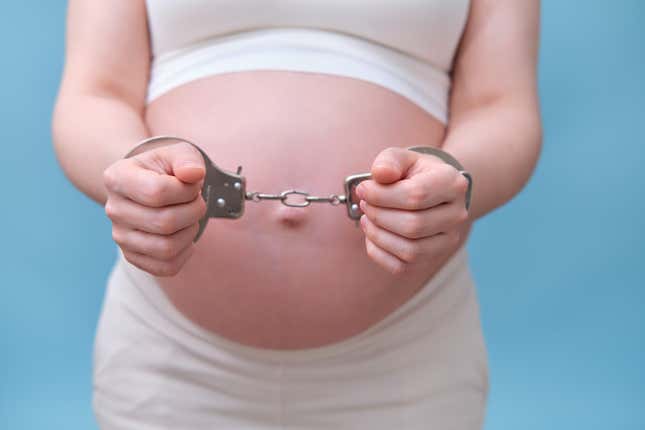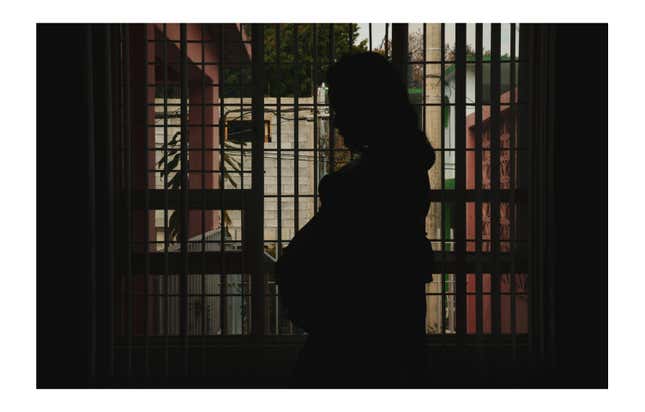Tennessee Becomes Latest State to Ban ‘Barbaric’ Shackling of Pregnant Incarcerated People
At least 10 states still allow this horrific practice. Let's get rid of it entirely.
JusticePolitics

Tennessee’s state legislature has passed a bill to restrict the shackling of pregnant incarcerated people this week, which now moves to the desk of Republican Gov. Bill Lee for approval. It’s baffling and unnerving that we even need laws like this to protect pregnant people from such dangerous and degrading treatment, but it’s important for states to take action, nonetheless.
Tennessee is just the latest state to advance legislation on this matter, following a similar bill signed into law in Alabama just last month. NPR reports that 37 states have currently laws that limit or prohibit the shackling of pregnant incarcerated people—leaving roughly 13 with no laws restricting this horrific practice, including Tennessee, Indiana and Alabama, which just passed theirs. Not gonna name names, but we’re looking at you now, Oregon, Montana, Wyoming, North and South Dakota, Kansas, Iowa, Wisconsin, Vermont and Michigan.
“Shackling is a dehumanizing, traumatic experience for the pregnant person and their baby, and this legislation is just part of what it will take to ensure incarcerated, pregnant people have some sense of dignity and respect throughout their pregnancy,” Briana Perry, co-director of Healthy and Free Tennessee, told Jezebel. Healthy and Free Tennessee was a leader in advocating for Tennessee’s unshackling bill.
According to the American Medical Association, shackling and restraining pregnant incarcerated people, particularly during delivery and the postpartum period, is “a barbaric practice that needlessly inflicts excruciating pain and humiliation.” The AMA also notes that restraining pregnant people “increases their potential for physical harm from an accidental trip or fall,” which, obviously, “can negatively impact her pregnancy.”
-

-

-

-

-

-

-

-

-

-

-

-

-

-

-

-

-

-

-

-

-

-

-

-

-

-

-

-

-

-

-

-

-

-

-

-

-

-

-

-









































